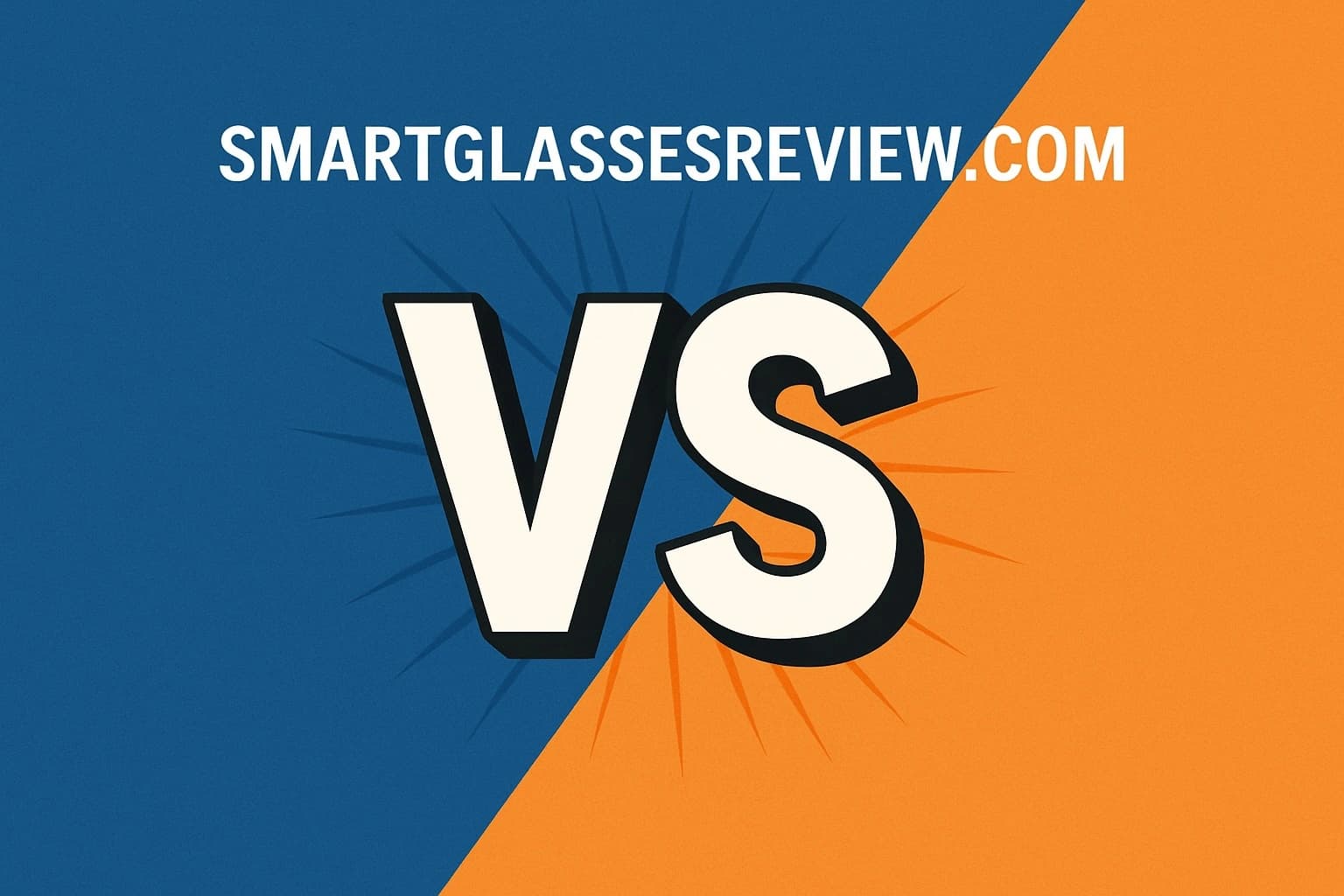
Solos AirGo 3 vs. Lucyd Lyte 2.0: Which Smart Glasses Should You Choose in 2024?
As we step into 2024, the realm of smart glasses continues to expand, offering more advanced features and integrations than ever before. Two notable contenders in this landscape are the Solos AirGo 3 and the Lucyd Lyte 2.0. Whether you're a tech enthusiast or simply looking to enhance your daily life with smart eyewear, this comparison will help you navigate the key differences and decide which model suits your needs best.
Design & Comfort
When it comes to wearing smart glasses, design and comfort play a crucial role:
-
Solos AirGo 3: Known for its sleek, sporty look, the AirGo 3 uses durable polycarbonate frames. It's lightweight, making it ideal for prolonged use without causing strain. The ergonomic design ensures a snug fit, whether you're cycling or just commuting.
-
Lucyd Lyte 2.0: The Lyte 2.0 offers a more classic, versatile style. Crafted with TR90 material, it combines flexibility with resilience. Slightly heavier than the AirGo 3, it still provides comfort for daily wear, though extended use might cause minimal pressure.
Display & Optics
While neither model is primarily an AR/XR device, display features still matter:
-
Solos AirGo 3: Equipped with a minimalistic HUD, it provides essential notifications without overwhelming the user. The display is clear in various lighting conditions, though it's not designed for immersive AR experiences.
-
Lucyd Lyte 2.0: Focused more on integrating smart features into everyday tasks, the Lyte 2.0 does not feature an augmented reality display, keeping the experience straightforward and less complex for users not seeking AR functionality.
AI & Smart Features
Both models integrate smart features to enhance usability:
-
Solos AirGo 3: Comes with built-in voice assistant support, allowing hands-free control. Gesture support and touch controls are intuitive, making it easy to manage calls and music without reaching for your phone.
-
Lucyd Lyte 2.0: Also supports voice assistants and offers seamless integration with smart home devices. The touch controls are responsive, and recent updates have improved compatibility with platforms like ChatGPT and Meta AI.
Audio & Microphone Quality
Quality audio is essential for smart glasses:
-
Solos AirGo 3: Boasts open-ear audio technology, delivering clear sound while keeping you aware of your surroundings. The microphone offers decent clarity, suitable for calls even in moderately noisy environments.
-
Lucyd Lyte 2.0: Features enhanced stereo sound with active noise reduction, providing a richer audio experience. The dual-microphone setup ensures your voice is captured clearly, making it a great choice for frequent callers.
Battery Life & Charging
Ensuring your glasses last throughout the day is vital:
-
Solos AirGo 3: Offers up to 8 hours of continuous use and charges via USB-C, allowing faster charging times compared to proprietary options.
-
Lucyd Lyte 2.0: Provides around 6 hours of battery life, which might require a midday charge for heavy users. It also uses USB-C, keeping charging convenient and fast.
App Support & Ecosystem
How these glasses integrate with your devices is crucial:
-
Solos AirGo 3: The companion app is user-friendly with regular firmware updates. It supports integrations with both Android and iOS, ensuring a broad ecosystem compatibility.
-
Lucyd Lyte 2.0: The app provides a straightforward interface and seamless integration with platforms like Apple and Meta, though updates are less frequent than Solos.
Price & Value
Understanding the cost implications can guide your decision:
-
Solos AirGo 3: Priced at around $349, it includes a carrying case and charging cable. Given its features, it offers good value for tech-savvy users.
-
Lucyd Lyte 2.0: Retailing at approximately $299, it comes with a similar package. It is a solid choice for those prioritizing audio quality and classic design.
Use Case Recommendations
Who should consider each model?
-
Solos AirGo 3: Perfect for those who value sportiness and the latest in smart technology, ideal for cycling, commuting, and multitasking professionals.
-
Lucyd Lyte 2.0: Best for users who want a blend of style and smart functionality, great for business professionals and frequent callers seeking quality audio.
Conclusion
Choosing between the Solos AirGo 3 and Lucyd Lyte 2.0 boils down to your personal preferences and lifestyle needs. The former offers a sporty design with robust smart features, while the latter provides excellent audio quality with a more traditional look.
Which one would you choose? Leave a comment or check out our in-depth reviews!